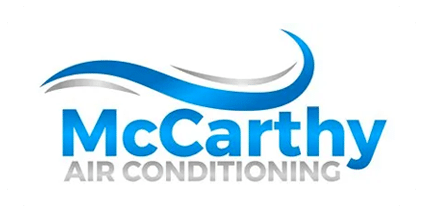Keeping your HVAC system in good shape is a little like taking care of your car—it needs regular attention to keep running smoothly. Many folks make simple mistakes that can lead to big problems down the road. Learning what these mistakes are and how to avoid them can save you a lot of trouble and money.
Neglecting Regular Maintenance
Skipping regular HVAC maintenance can lead to a host of problems over time. When small issues go unchecked, they can become major problems that are costly to fix. Regular maintenance ensures your system operates efficiently, providing comfort without high energy bills. Dust and debris accumulate in filters and ducts, reducing airflow and causing your system to work harder. This can result in overheating and potential breakdowns.
Routine maintenance typically involves several key tasks. First, inspecting and replacing air filters is essential. A clean filter ensures proper airflow and keeps the air in your home clean. Checking the thermostat and its settings is another important step. Make sure it accurately reflects the temperature in your home. Lubricating moving parts, like fans and motors, helps prevent wear and tear, reducing the risk of failure.
Here are important maintenance tasks:
- Filter Replacement: Change filters every 1-3 months.
- Check the Thermostat: Ensure accurate readings.
- Lubricate Parts: Prevent wear on fans and motors.
- System Inspection: Check for unusual noise or leaks.
Regular HVAC check-ups prevent small issues from growing into big, costly repairs. Proper maintenance enhances efficiency, saving money and extending the life of your system.
Incorrect Thermostat Usage
Using your thermostat improperly can affect both comfort and energy efficiency. Common mistakes include setting the thermostat too high or low or frequently changing the temperature. This inconsistent use leads to increased energy consumption and places unnecessary strain on your HVAC system, reducing its lifespan.
A few smart management tips can help optimize your thermostat usage. First, try not to alter the temperature too often. For best efficiency, set your thermostat at a consistent temperature. In the winter, aim for around 68 degrees Fahrenheit during the day and lower it slightly at night. In the summer, setting it to 78 degrees Fahrenheit can keep you cool while saving energy. Utilize programmable settings if available, allowing the thermostat to adjust temperatures according to your daily schedule, boosting energy savings while maintaining comfort.
Advancements in thermostat technology mean many models offer impressive smart features. This includes remote access through smartphones, allowing you to make temperature changes on the go. Predictive settings learn your preferences and adjust themselves over time, improving comfort automatically. Adopting these modern tools can significantly enhance the effectiveness and efficiency of your system, keeping your home comfortable and your energy bills low.
Blocking Air Vents and Returns
Blocking air vents and returns is a common mistake that can significantly reduce your HVAC system’s efficiency. When vents are obstructed by furniture, curtains, or other objects, it prevents the proper flow of air throughout your home. This makes your system work harder to reach the desired temperature, leading to increased energy consumption and potentially higher utility bills.
Additionally, blocked vents can cause uneven heating or cooling, making some rooms uncomfortable. Continuous blockages can also lead to pressure imbalances, which might damage your system over time and decrease its lifespan.
To ensure optimal airflow, keep all vents and returns clear of obstructions.
Here are some easy tips:
- Furniture Placement: Arrange furniture to avoid covering vents.
- Curtain Management: Use blinds instead of heavy drapes near vents.
- Regular Checks: Inspect vents weekly to make sure they aren’t blocked.
These small adjustments not only improve air circulation but also enhance the overall performance of your HVAC system, keeping your home comfortable and your system running smoothly.
Ignoring HVAC Component Issues
Ignoring component issues in your HVAC system can lead to costly repairs or replacements. Symptoms like strange noises, unexplained spikes in energy bills, or inconsistent temperatures should be immediate red flags. Addressing these signs early can prevent major breakdowns and maintain system efficiency.
Common warning signs to look out for include rattling noises, which might indicate loose parts, or unusual odors that could suggest mold in the ductwork. If your system cycles on and off more frequently than usual, it could be a sign of a malfunction that requires attention.
To prevent these issues from escalating, take the following steps:
- Listen Carefully: Pay attention to unusual sounds or smells.
- Monitor Bills: Track energy use for unexpected increases.
- Professional Inspections: Schedule check-ups if problems persist.
By staying vigilant and addressing these issues early, you can keep your HVAC system in excellent condition and avoid unnecessary expenses.
Conclusion
Avoiding common HVAC mistakes is crucial for maintaining an efficient and reliable system. Regular maintenance, correct thermostat usage, keeping vents unblocked, and addressing component issues promptly are simple yet effective ways to enhance your system’s performance. By understanding these common pitfalls and how to avoid them, you can ensure your home stays comfortable year-round while also extending the life of your HVAC system.
When it comes to keeping your HVAC system in top shape, trust McCarthy Air Conditioning. Our team is ready to help with expert advice and professional services tailored to your needs. Whether you’re facing HVAC issues or need routine HVAC service in Fort Myers, FL, contact us to ensure your system operates at its best, providing comfort and efficiency for years to come.




